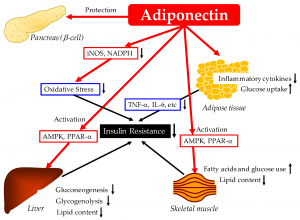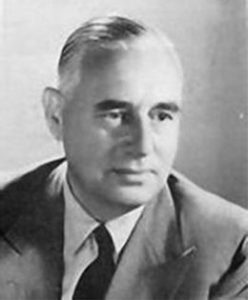HCG DIET RESEARCH: HOW AND WHY IT WORKS FOR WEIGHT LOSS
Positive HCG Diet Research: Does the HCG Diet Work For Weight Loss?
Due to ongoing controversy regarding just how effective the HCG diet can be for weight loss, we are going to take a deep dive into the clinical literature.
Here, we’ll supply the no-holds-barred, honest truth regarding what HCG can (and can’t) do to deliver the belly-slimming weight loss results you want to see.
At the end, for the patients wondering “where can I find HCG near me,” we’ll deliver the goods on the score as well. Let’s take a dive into all the positive HCG Diet Research that they don’t want you to know.
Debunking the HCG Diet ‘Debunkers’ (How to Read Past the Headline)
A web search on the HCG diet will turn up article after article claiming to “debunk” the effectiveness of the HCG diet for losing weight.
The central, and most glaring, problem with negative reports on the HCG’s diet’s effectiveness is that it ignores the practical, real-world success that patients achieve on the diet. Instead, they focus only on theoretical clinical findings, often relying on data from animal studies alone.
This World Anti-Aging Conference paper explains well the issue:
“The results of a series of studies were interpreted to mean that hCG should not be used for the treatment of obesity, notwithstanding reports from many patients who had been treated with the hCG protocol referred that they were completely satisfied with the method and the obtained results.” (more on actual vs theoretical results of HCG therapy later)
In addition, the HCG diet naysayers ignore the hard clinical data that support its use and only cherry-picks studies that fit their agenda to “debunk” the diet.
How the HCG Diet Actually Boosts Weight Loss (the Scientific Receipts)
This Gynecologic and Obstetric Investigation – published in a respected leading medical journal – explains the clear mechanisms behind HCG weight loss:
“Following gonadotropin treatment, serum adiponectin levels decrease as a result of the negative effect of high estradiol levels on adiponectin production. Conversely, serum adiponectin levels increase following human chorionic gonadotropin treatment.”
Higher serum adiponectin levels triggered by HCG therapy, in turn, reduce blood glucose (blood sugar) and spur the breakdown of fatty acids:
“Positive HCG Diet research studies have shown that adiponectin also helps to manage weight by controlling the levels of glucose within the body and by breaking down fatty acids. Therefore, activating adiponectin and increasing the levels in the blood can help with the management of weight and weight-related disorders.”
The researchers in the study titled Metabolic Activity of Human Chorionic Gonadotropin (hCG) on Glycemia and Leptinemia further explain the blood sugar-regulating benefits of HCG via the mechanism discussed above:
“Results show the activity of hCG (both urinary and recombinant) on glycemia and leptins levels in experimental animals in different formulations, but specifically when administered intrarectal. hCG significantly decreased blood sugar and leptin levels… hCG administration is a useful therapeutic approach in the treatment of diseases that result in hyperglycemia and hyperleptinemia.”
To further support the efficacy of HCG therapy, the paper trail documenting HCG’s clinical usefulness extends back nearly 70 years:
“During clinical work in the early 1950s, Dr. ATW Simeons, a British endocrinologist, pioneered the theory of using hCG to help people lose weight and abnormal belly fat… Over the next 10 years, Simeons… proved that when both the correct amount of hCG and his food plan were followed as he had designed, both males and females had the ability to lose extraordinary amounts of abnormal fat in relatively short periods of time than with just diet and exercise alone.”
Why Aren’t More Research Institutions Interested in HCG For Weight Loss?
One of the main issues here is the lack of studies taking hard looks at the now-proven connection between HCG and weight loss. Studies require funding, which often falls to pharmaceutical companies to provide.
However, because HCG is a naturally occurring hormone, its production cannot, therefore, be monopolized in the same way that an experimental, synthetic drug might be. This fact makes developing studies to support HCG’s therapeutic usefulness less attractive to these companies that depend on monetizing the research they fund.
Furthermore, in addition to being all-natural, HCG is a relatively affordable supplement – a benefit for patients, but not for the bottom line of profit-driven drug developers.
The bottom line: If pharmaceutical firms can develop more expensive, newer, more profitable drugs than HCG to market as “weight loss supplements,” they will. The good news for you, the patient, is that you have the freedom to choose between highly effective and safe HCG and riskier, more expensive alternatives.
Are Any Side Effects Associated With the HCG Diet?
First of all, unlike most pharmaceuticals that are synthetic in origin, it’s critical to understand that HCG is a naturally occurring human hormone, meaning that the risk of side effects is much lower than experimental or lab-produced drugs.
Like any medical treatment, though, HCG supplementation does carry some risk of side effects that may include:*
- Irritability
- Depression
- Fatigue
- Restlessness
- Fluid buildup (edema)
- Breast swelling in males (gynecomastia)
*Please note: the clinical literature shows that the majority of side effects from HCG occur from extremely high doses that are typically used in fertility treatment – far above the relatively small amounts of the hormone used in the HCG diet (125 IU to 500 IU).
The bottom line on the potential side effects of the HCG diet: Through our carefully designed therapy protocol based on decades of research, HCG Near Me has successfully helped over 6,000 patients (including several physicians) shed unwanted fat with no major side effects.
Is HCG Legal in the United States?
Yes, HCG is fully legal and regulated in the United States by the Food and Drug Administration.
Unlike drugs with high potential for abuse, dependency, or overdose (such as fentanyl or anabolic steroids), HCG is not a controlled substance per the US Department of Justice Controlled Substances List.
Patients using HCG off-label for weight loss do, though, require a prescription from a licensed US healthcare provider per FDA guidelines. All HCG supplies that we use at HCG Near Me are legally prescribed.
How Does HCG Near Me Work and How Do We Ensure Patient Safety?
Under our unique protocol, HCG therapy is broken into four distinct phases:
- Phase 1: loading days
- Phase 2: 800 calorie days (estimate; calorie count determined on a case-by-case basis)
- Phase 3: Stabilization
- Phase 4: keeping the weight off.
One of our guiding principles is that every patient’s body is unique. To that end, through our individualized approach to therapy, we protect patient safety and ensure optimal results from the HCG diet.
Rather than relying on the original, conventional HCG diet protocol of 500 daily calories, we customize each of our patients’ therapies using our proprietary HCG Calorie Counter based on the following criteria:
- Body-mass index (BMI)
- Metabolic rate
- Activity level
Get Started Shedding Body Fat With the HCG Near Me Today
With patient satisfaction and comfort as our aim, we are always available to answer any questions or address any concerns you might have regarding the HCG diet. Contact us here.
We’re ready whenever you are to transform your body with our individualized HCG diet protocol based on your individual weight loss goals. We have presented enough positive HCG Diet research to help you better understand this excellent program. We hope to hear from you soon!



